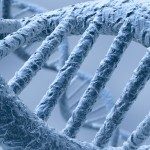Lien vers Pubmed [PMID] – 21448974
Hum. Mutat. 2011 Jun;32(6):633-42
Identifying how natural selection has affected immunity-related genes can provide insights into the mechanisms that have been crucial for our survival against infection. Rare disorders of either chain of the IFN-γ receptor, but not of IFN-γ itself, have been shown to confer predisposition to mycobacterial disease in patients otherwise normally resistant to most viruses. Here, we defined the levels of naturally occurring variation in the three specific genes controlling the IFN-γ pathway (IFNG, IFNGR1, IFNGR2) and assessed whether and how natural selection has acted on them. To this end, we resequenced the three genes in 186 individuals from sub-Saharan Africa, Europe, and East-Asia. Our results show that IFNG is subject to strong purifying selection against nonsynonymous variants. Conversely, IFNGR1 and IFNGR2 evolve under more relaxed selective constraints, although they are not completely free to accumulate amino acid variation having a major impact on protein function. In addition, we have identified signatures of population-specific positive selection, including at one intronic variant known to be associated with higher production of IFN-γ. The integration of our population genetic data into a clinical framework demonstrates that the IFN-γ pathway is essential and nonredundant in host defense, probably because of its role in protective immunity against mycobacteria.


